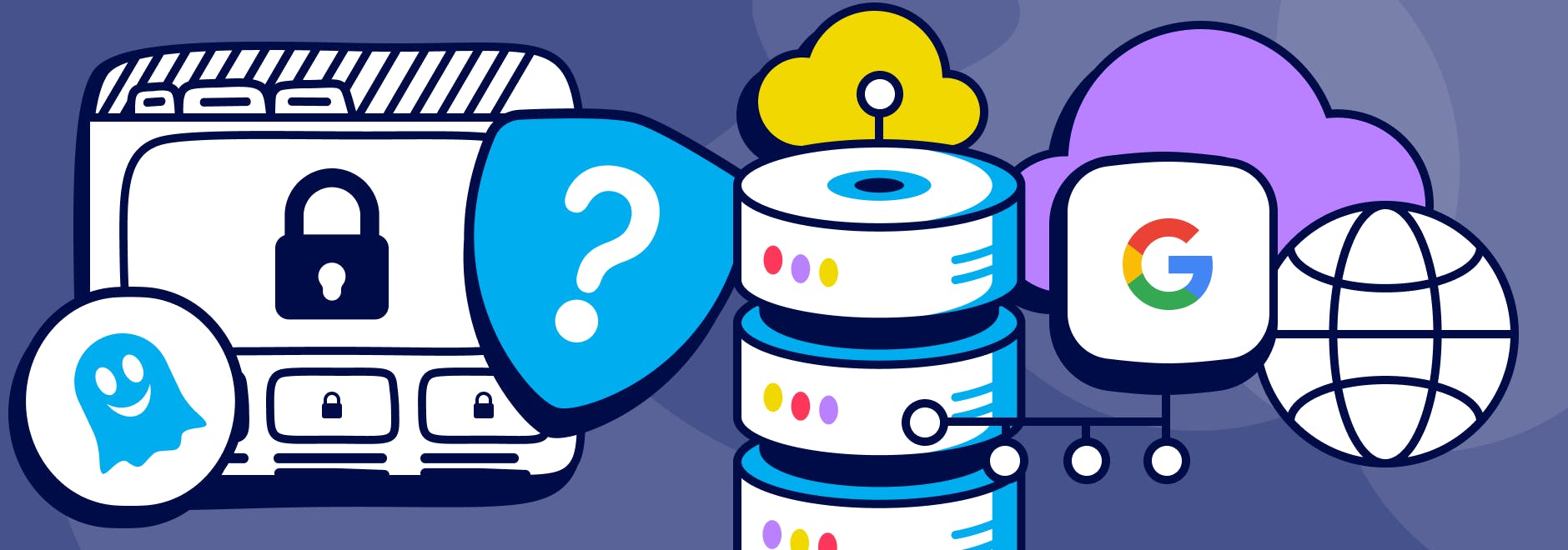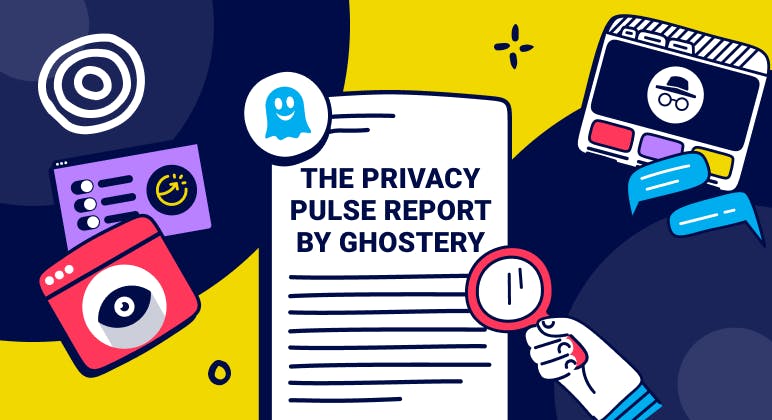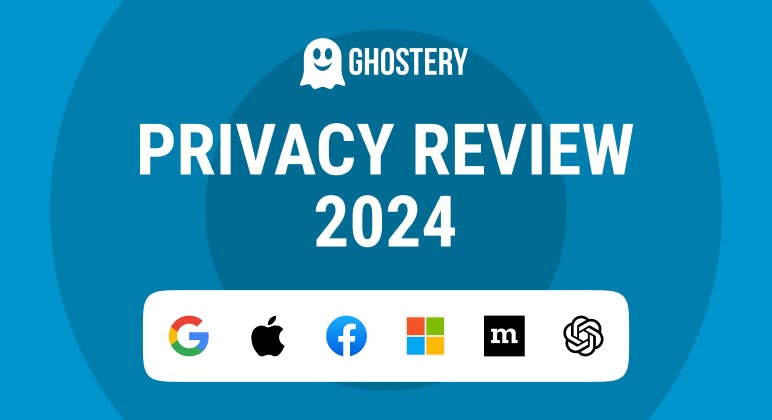Editorial
Can You Trust Google with Your Data?
Key Points:
- Google services are designed for convenience and efficiency, but they also collect and use your data.
- Relying less on Google services, limits the data Google can gather on you.
- Users should weigh the pros and cons of using Google services, explore the alternatives, and take steps to enhance your data security.
- A tracker blocker like Ghostery can stop companies from tracking your online activity and collecting your personal data without consent.

Can You Trust Google with Your Data?
One of the most pressing issues of our time is data privacy. How do we protect our personal information online? Who has access to it and what do they do with it? How can we ensure that our data is not misused or exploited by third parties?
These questions are especially relevant when it comes to Google, one of the most influential companies in the world.
Google offers a wide range of services that we use every day, such as
- Gmail
- Google Maps
- Google Photos
- Google Drive
- YouTube
- Google Chrome
and of course, the Google search engine.
These services are convenient, efficient, and often free, but they come with a trade-off: We have to give Google access to our data.
We will explore the pros and cons of using Google services, the risks and benefits of giving Google your data, and the tools and strategies you can use to protect your data privacy. We will also highlight a tool called Ghostery, which can help you shield yourself from online trackers and ads.
The Convenience of Using Google Services
Google services are designed to make our lives easier and more enjoyable. They offer seamless integration across platforms, personalized user experience, and productivity boosts.
Seamless Integration Across Platforms
One of the main advantages of using Google services is that they work well together and across different devices.
For instance, you can access your Gmail account from your laptop, smartphone, or tablet, and sync your contacts, calendars, and documents across them. You can also use your Google account to sign in to other websites and apps.
This integration saves you time and hassle, as you don’t have to create multiple accounts or remember different passwords. It also allows you to access your data from anywhere and anytime, as long as you have an internet connection.
Personalized User Experience
Another benefit of using Google services is that they tailor their features and content to your preferences. For example:
- Google search uses your search history, location, and other factors to provide you with relevant and customized results.
- Google Maps uses your travel history and traffic data to suggest the best routes and destinations for you.
- YouTube uses your watch history and subscriptions to recommend videos that you might like.
This personalization enhances your user experience, as you get more value and satisfaction from the services. It also helps you discover new things that match your interests and goals.
Efficiency and Productivity Boosts
A third advantage of using Google services is that they help you improve your efficiency and productivity in various tasks and projects. For example:
- Gmail offers features such as autocomplete, smart compose, snooze, automatic calendar entries, labels, filters, and priority inbox to help you manage your emails better.
- Google Drive offers features such as cloud storage, file sharing, collaboration tools, and offline access to help you work on your documents more effectively.
- Google Assistant offers features such as voice control, reminders, timers, translations, and smart home integration to help you perform various actions more easily.
These features help you save time and energy, as you can accomplish more with less effort. They also help you optimize your workflow and performance in different domains.
Risks of Giving Google Your Data
While Google services offer many benefits, they also risk your data privacy.
Data Breaches and Cybersecurity Threats
One of the risks of giving Google your data is that it might be exposed or compromised by data breaches and cybersecurity threats.
Google has experienced a few data breaches over the years:
- In January 2023, T-Mobile suffered a data breach affecting 37 million customers, including some Google Fi subscriber data. Other Google services were unaffected since the hack targeted T-Mobile rather than Google directly. This Google data leak served as a reminder that customer data is vulnerable when shared with third-party companies.
- There was a Google data breach in 2018. Google+, the social network run by the company between 2011 and 2019 had a software bug that exposed the personal information of over 500,000 users. The bug was fixed, but the incident led Google to accelerate the shutdown of the Google+ social network.
- In September 2014, nearly 5 million Gmail usernames and passwords were leaked online, prompting Google to require password resets, although the company claimed its systems were not compromised and the credentials may have come from various sources. The incident highlighted the importance of using two-factor authentication to better secure accounts.
So while Google has a strong security and privacy infrastructure overall, the company has experienced some data exposure incidents over time.
The breaches were relatively limited compared to the billions of users Google serves. But they highlight the challenges of securing massive amounts of data and the importance of transparency when incidents do occur.
These incidents show that Google is not immune to data breaches and cybersecurity threats, and that your data might be vulnerable to them as well.
Data Monetization and Advertising
Another risk of giving Google your data is that it might be used for data monetization and advertising.
Google is one of the largest and most profitable companies in the world, and a big part of its success comes from its ability to monetize and advertise its users’ data.
Google’s ad revenue in 2023 was $58.14 billion. Google uses its users’ data to create targeted ads that match their interests, behaviors, and preferences.
Most users find personalized ads intrusive, annoying, or misleading. Some users might also be concerned about how their data is shared with third-party advertisers and partners, and how their privacy is protected.
Potential Misuse and Overreach
A third risk of giving Google your data is that it might be misused by Google or other parties.
Google has been accused of over-collecting user data. To name a few:
- The European Commission fined Google €2.42 billion in 2017 for breaching EU antitrust rules by abusing its dominance as a search engine.
- Google has also faced lawsuits over privacy violations like tracking user locations and recording conversations without consent. They agreed to pay $391 million in a class action lawsuit over tracking users in Incognito mode.
- Google was accused of collecting users' health, race, ethnicity, sexuality and finance data in 2021 through Apple's Safari web browser on iPhones during 2011-2012, even when users had chosen to opt out of data collection.
- Google was accused by the attorneys general in 2020 of secretly tracking Android phone users and misleading them about how their location data was collected through tools like Google Maps and search.
What’s more, it has been argued that Big Tech’s algorithms and access to big data have negatively impacted news and journalism.
Google might not always respect or comply with the laws and regulations that govern its users’ data, and that your data might be subject to legal disputes or actions.
Google’s Stance on Privacy
Google claims that it values and respects its users’ privacy. You can read the full text of Google’s Privacy Policy here.
User Control Over Data Settings
Google also gives you the ability to control your data settings through various tools and options. Some of the main tools and options are:
- Google Account: Access and manage your personal information, privacy settings, security settings, and preferences for all Google services. You can also view your activity history, dashboard, security checkup, and privacy checkup.
- Activity Controls: Choose what activity data Google collects from you across its services, such as web and app activity, location history, device information, voice and audio activity, YouTube history, and YouTube TV history. You can also pause or delete your activity data at any time.
- Ad Settings: Control how Google uses your data to show you personalized ads. You can also opt out of personalized ads altogether or block specific advertisers or topics.
- Google Takeout: Download your data from Google services.
You can access these tools and options by visiting myaccount.google.com or by going to settings.google.com.
Google’s Commitment to Transparency
Google also claims that it is committed to being transparent about its data practices and policies.
You can learn about Google’s transparency efforts by visiting Google Transparency Report or by going to Google Commitments.
The Ability to Download Your Data
You may ask, “What does Google know about me?” A Google data download allows users to download a copy of the data Google has collected about them.
Google not only allows you to use its services but also gives you the option to download your data from them. This means that you can export a copy of your data from various Google products to your computer or another service.
Understanding Google Takeout
The tool that enables you to download your data from Google is called Google Takeout.
The service was launched in 2011 as part of Google’s Data Liberation Front, an initiative that aims to make it easier for users to move their data in and out of Google products.
A Google data download allows users to download a copy of the data Google has collected about them. Just remember that even if you download your data, Google is still able to use it.
You can access Google Takeout by visiting takeout.google.com.
Benefits of Having a Data Backup
Users can request a Google archive data file containing their search history, location history, YouTube history, and other data collected by Google.
Downloading your data from Google has several benefits for you as a user. One of them is that it gives you a backup of your data in case something happens to your account or device.
Another benefit is that it gives you more control over your data.
You can decide what to do with your data after you download it, such as deleting it from Google, transferring it to another service, or keeping it for yourself. But remember that, despite downloading your data from Google, they likely still have the ability to use it.
A third benefit is that it gives you more awareness of your data. You can see what kind of data Google collects from you, how much data you have, and how your data changes over time.
Tools to Protect Your Data: Spotlight on Ghostery
While Google offers some tools and options to control your data settings, you might want to use additional tools to protect your data privacy.
One of the tools is Ghostery, our browser extension that blocks online trackers and ads.
What is Ghostery?
Ghostery is a tool that helps you browse the web faster and safer. It allows you to see and block the trackers that follow you around the web.
The extension also allows you to block the ads that you see on the web, such as pop-ups, banners, video ads, and more.
How Ghostery Shields You from Trackers
Ghostery shields you from trackers by preventing them from collecting your data or influencing your behavior by:
- Enhancing your privacy by reducing your digital footprint and preventing third parties from tracking your online activity and building profiles of you.
- Improves your security by protecting you from malicious ads that might harm your device or steal your information.
- Boosts your performance by speeding up your browsing and saving your bandwidth and battery by blocking unwanted trackers and ads.
Ghostery's ad block extension empowers users to take control of their digital privacy while browsing the web. It blocks ads, trackers, and pop-ups to provide a faster, less cluttered browsing experience.
Using curated blocklists and heuristic algorithms, Ghostery prevents third parties from accessing personal data and replaces unique identifiers with random values to anonymize user identity.
How to Get Ghostery
The extension seamlessly integrates with browsers. Ghostery also significantly improves page load speeds by removing ad content, even preventing consent to tracking.
Installing and using Ghostery’s free ad-blocker is easy:
- Go to our website and click on Get Ghostery.
- Follow the on-screen instructions to add the extension to your browser.
- Pin the extension in your toolbar.
- Enjoy an ad-free browsing experience with Ghostery!
Never installed a browser extension? No worries. Check out our instructions below on how to get started:
Chrome | Safari (video instructions) | Edge | Firefox | Opera
Making an Informed Decision
Having weighed the pros and cons of Google services, make an informed decision about whether or not to trust Google with your data.
Weighing the Pros and Cons
The first step to making an informed decision is to weigh the pros and cons of using Google services.
You need to consider how much value and convenience Google services provide you versus how much risk and exposure they pose to your data privacy.
You also need to consider how much trust and confidence you have in Google’s data practices and policies versus how much doubt and suspicion you have in them.
Alternatives to Google Services
The second step to making an informed decision is to explore alternatives to Google services.
You might want to consider using other services that offer similar or better features, quality, price, reputation, etc. than Google.
There are many alternatives to Google services that you can choose from.
- Search engines: Ghostery Private Search, DuckDuckGo, Brave Search, Kagi
- Email: ProtonMail, Tutanota
- Maps: OpenStreetMap, MapQuest
- Photos: Flickr, Dropbox, iCloud
- Drive: Dropbox, OneDrive, iCloud
- YouTube: Vimeo, Dailymotion, PeerTube, BitChute
- Chrome: Ghostery Private Browser, Firefox, Brave
(Note that some services mentioned here also have tracking or analytics built-in, even if they are not Google services.)
You can find other privacy-respecting resources at privacyguides.org/en/tools.
Final Thoughts
The balance between convenience and privacy is a tricky one to achieve. Google services offer many benefits that make our lives easier and more enjoyable, but they also risk our data privacy.
We have to decide how much data to trust Google with, and how we can protect our data from unauthorized access or misuse.
While Google offers convenience, their data collection raises valid privacy concerns. Tools and strategies exist to limit data sharing.
With this knowledge, you can now make an informed decision about entrusting Google with your information based on your personal priorities regarding utility, privacy, and security.
Remember that your data is yours, and you have the ability to protect it.
Have questions? Get in touch. We’re always happy to help.


